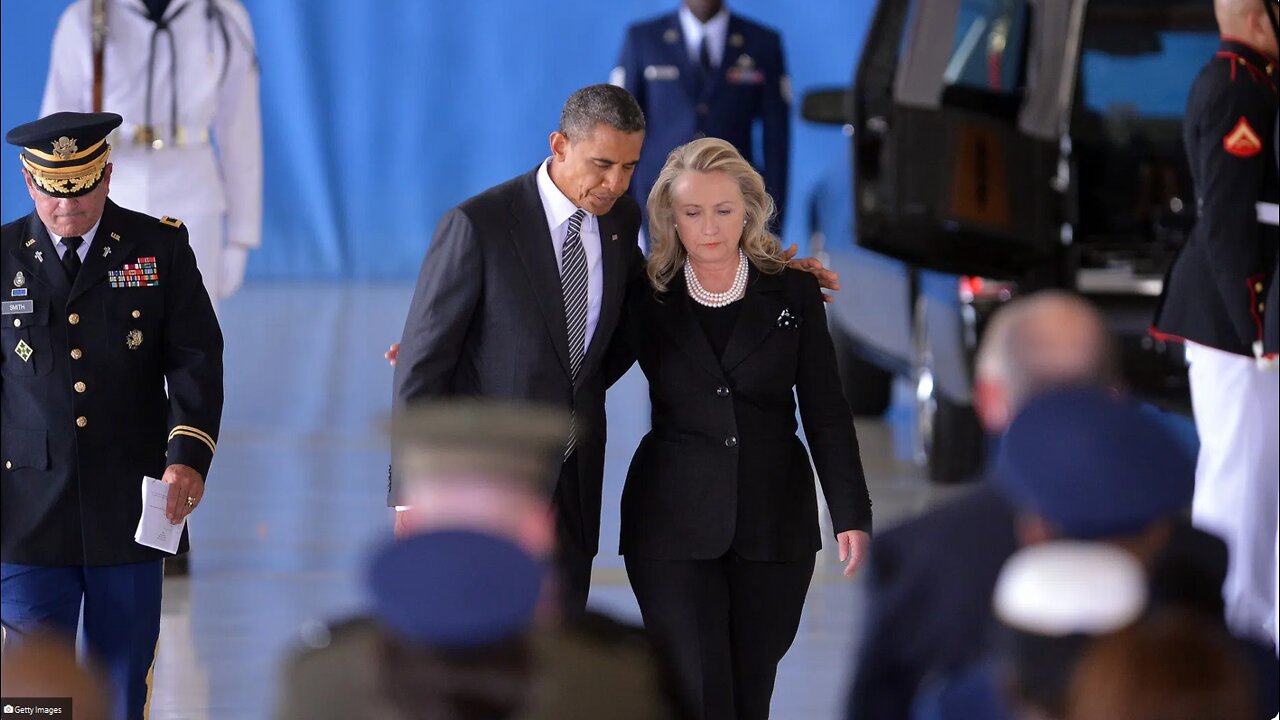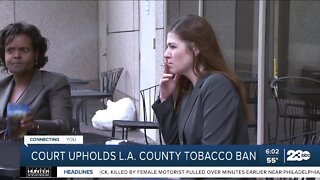Premium Only Content

Federal Appeals Court Rules Benghazi Terrorist’s Prison Sentence Way Too Low
Photo of Jon Dougherty Jon DoughertyJuly 27, 2022
Getty Images
OPINION: This article may contain commentary which reflects the author's opinion.
The terrorist attack on a U.S. Embassy and CIA compound in Benghazi, Libya, a decade ago during then-President Barack Obama’s administration is still making headlines.
On Tuesday, a federal appeals court ruled that a lower federal court’s sentence of a terrorist actor who took part in the attack that left four Americans dead including then-U.S. Ambassador to Libya Christopher Stevens was far too low, and well below established sentencing guidelines for similar federal crimes.
Fox News reports:
The 22-year sentence for a Libyan militant convicted of four terrorism charges for his involvement in the 2012 Benghazi attack is “unreasonably low,” a federal appeals court ruled Tuesday.
Ahmed Abu Khatallah, 51, was convicted of four counts in 2017, including providing material support to terrorists and destroying US property, but was acquitted on the most serious charges.
Sentencing guidelines said that Khatallah should have been sentenced to 30 years to life in prison, according to prosecutors.
The U.S. Court of Appeals for the D.C. Circuit ruled Tuesday that 22 years behind bars is nowhere nearly long enough for Khatallah “given the gravity of such an assault on an American diplomatic facility and the district court’s own recognition of the vital need to deter such crimes.”
“In sentencing Khatallah to just twelve years for the two support-of-terrorism counts and the property destruction count, the district court did not—and could not on this record—sufficiently justify its additional variance so far below the sentencing range that would have been appropriate even without any consideration of acquitted conduct,” the three-judge panel noted in the ruling.
Attorneys for the convicted terrorist filed a motion for a mistrial before and after his initial verdict.
Now, following the appeals court decision, Khatallah’s case has been remanded back to the lower federal court for resentencing.
Following the attack, the Obama administration was heavily criticized for what many believed was irresponsible inaction despite warning signs of an impending attack. Then-Secretary of State Hillary Clinton was singled out for much of the criticism after Republicans learned that Amb. Stevens had requested increased security for his diplomatic mission on a number of occasions without a response.
The GOP-controlled Congress launched an exhaustive investigation into the attack led by then-Rep. Trey Gowdy of South Carolina. The committee released an 800-page report in June 2016, as Clinton was preparing to secure the Democratic nomination for president, which she would eventually capture but then lose to GOP nominee Donald Trump.
According to Politico, “the report drilled down on new details about how Clinton’s State Department failed to protect the diplomatic outpost in Libya. The report also said that the CIA missed the looming threat despite warnings and wrote faulty intelligence reports after the attack. And GOP staff said their findings indicate that the Defense Department did not meet its response times to deploy military assets to Benghazi and follow-up to ensure Americans were rescued in a timely fashion.”
“The report includes new specifics about a U.S. teleconference convened by White House chief of staff Denis McDonough during the attack. According to the report, some participants on the videoconference were unsure about what each agency was doing to rescue Americans,” Politico continued. “State Department officials on the call also brought up concerns about whether Marines who might have been deployed to Benghazi were wearing uniforms, the report found — something officials previously said could hurt diplomacy in the region. One commander told the committee he and his men over the course of three hours kept having to change from uniforms to civilian clothes.”
Obama never deployed the military to Benghazi.
After the report was released, Clinton tried her best to make it political. She said she would “leave it to others to characterize this report but I think it is pretty clear it is time to move on.”
“And I said this when I testified for 11 hours that no one has thought more about or lost more sleep over the lives that we lost, the four Americans, which was devastating. And we owe to those brave Americans that we make sure we learn the right lessons from this tragedy,” Clinton added.
During her testimony, Clinton infamously decried, “What difference, at this point, does it make?” in response to intension questioning from Sen. Ron Johnson (R-Wis.) about why the administration initially put out a false narrative about the attack.
YouTube Video:
Clinton on talking points: 'What difference at this point does it make?'
Jan 23, 2013
Washington Free Beacon
Hillary Clinton on Jan. 23, 2013.
-
 4:33
4:33
Guns & Gadgets 2nd Amendment News
3 years agoFederal Appeals Court Rules On Bumpstock Ban
59 -
 0:41
0:41
KERO
2 years agoFederal appeals court upholds Los Angeles County ban on flavored tobacco products
441 -
 0:19
0:19
WFTS
2 years agoGhislaine Maxwell transferred to federal prison in Florida
261 -
 8:49
8:49
MRCTV
3 years agoFederal Appeals Court Halts Biden Jab Mandate - For Now
1.18K11 -
 3:21:29
3:21:29
Alex Zedra
10 hours agoLIVE! New Game | R.E.P.O
51.6K4 -
 1:52:42
1:52:42
Kim Iversen
12 hours ago💰 CHA-CHING! 💰 Trump Unveils Big Money Plans For Gaza AND America
67.5K198 -
 1:05:28
1:05:28
Flyover Conservatives
1 day agoUkraine’s Dirty Secret: The Christian Persecution No One Wants to Talk About - Alex Newman | FOC Show
68.2K25 -
 2:00:20
2:00:20
Glenn Greenwald
17 hours agoThe View from Moscow: Key Russian Analyst Aleksandr Dugin on Trump, Ukraine, Russia, and Globalism | SYSTEM UPDATE #414
167K68 -
 1:10:55
1:10:55
Donald Trump Jr.
14 hours agoBREAKING NEWS: My Father Revokes Biden-Maduro Oil License, LIVE with Maria Corina Machado | Triggered Ep.220
227K206 -
 1:25:29
1:25:29
Sarah Westall
13 hours agoX-Files True History, Project Blue Beam, Cabal Faction War w/ Former FBI Agent John DeSouza
99.8K40